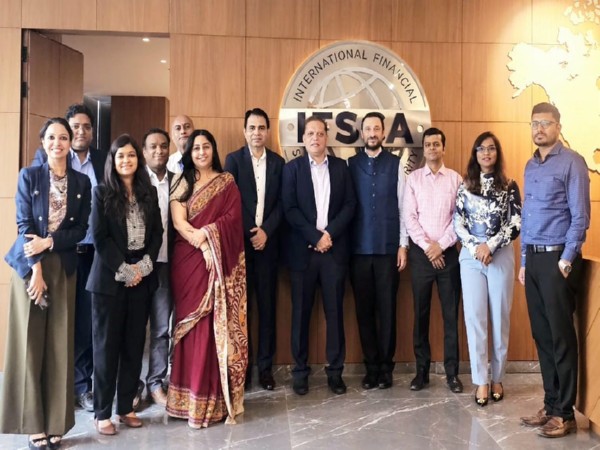Is Obesity Dangerous? Does Covid-19 Risk Increase With Obesity? Can We Control Obesity?
Dec 28, 2020

Hyderabad (Telangana) [India], December 28 (ANI/Mediawire): Dangers of Obesity:
Do you know that obesity is second only to smoking in the leading causes of preventable deaths? That's how dangerous and serious obesity is! Obesity is a chronic and progressive disease that impacts every organ in the body, and impacts almost every aspect, be it physical, psychological, or social well-being of a person. Most people suffering from obesity do not consider excess weight as a problem. They seek expert help only when they develop some or the other medical problem related to excess weight.
Obesity is a precursor to several other diseases such as type 2 diabetes, hypertension, dyslipidemia, heart disease, stroke, certain types of cancer, gall bladder disease, osteoarthritis, gout, infertility, lung diseases, obstructive sleep apnea, sexual dysfunction, mental health issues such as depression, to name a few. These co-morbid diseases can be prevented if obesity is dealt with at the right time, i.e. before the onset of these problems.
In terms of COVID-19 risk, Public Health England has estimated that obesity could increase COVID-19 related death risk by 40% to 90% depending on the severity of obesity
In addition, the social bias, prejudice, and discrimination faced by the individuals suffering from obesity , may make them reluctant to seek medical assistance - not only for obesity but also for any related health issues . Obesity is declared as a global epidemic by the World Health Organization (WHO), and the number of individuals suffering from obesity in India as a percentage of total population is rapidly rising.
Shaming Doesn't Help:
Societies across the world label individuals suffering from obesity as "lazy", "lacking self-control," amongst many other things. But obesity is often caused by multiple factors such as genetic predisposition, defective metabolism, hormonal imbalance, side-effects of certain medications etc , which are beyond the control of these individuals.
Irrespective of what triggered weight gain, most individuals with obesity benefit from seeking expert medical help. Before we explore why medical help is needed for obesity, let's understand how obesity is defined.
Defining Obesity
The most commonly used parameter to define obesity is BMI (Body Mass Index). BMI is a measure of your weight in relation to your height.
World Health Organization (WHO) considers a BMI >= 30 kg/m2 as Class I obesity. BMI >= 35 kg/m2 is Class II - severe obesity, and BMI >= 40 is Class III - severe obesity. BMI cut-off limits to define obesity are lower in Indians compared to those for western people. In Indians, BMI >= 25 is considered as Class 1 obesity, while >= 30 is considered as Class II - severe obesity.
Why Do Diet & Exercise Fail To Control Severe Obesity?
Low-calorie diet and exercise are the most popular methods across the world to control obesity. Although healthy diet and exercise can reduce weight burden in overweight individuals or those with mild obesity, these methods fail to address severe obesity in the long run as body has gotten adapted to a higher weight level in individuals with severe obesity. In these individuals, even if there is initial weight loss with dieting, weight will bounce back leading to further weight gain and progression of obesity . Calorie restriction is countered by the body mechanisms that reduce metabolic rate and increase hunger, ensuring the weight regain.
Similarly, a review of 80 studies found that exercise alone resulted in minimal weight loss. People tend to overeat after exercise without realizing, as their bodies try to compensate for the lost energy.
Most individuals with severe obesity who try diet and exercise, will have initial success, but eventually regain lost weight. This is more due to the effect of hormones controlling body fat and energy balance than due to their lack of willpower or the wrong diet.
There is a documented observation that for an individual with a BMI >= 35 kg/m2, the chances of achieving long lasting weight loss with lifestyle modifications alone is less than 1% .
What Is The Solution?
The first step is to recognize that obesity is a serious disease that needs specialized medical help, just like any other disease such as type 2 diabetes and hypertension. The second step is to contact an obesity expert to seek appropriate treatment options. Patients with severe osteoarthritis need to be treated by a joint replacement surgeon. Similarly, individuals with severe obesity need bariatric and metabolic surgeries.
Minimally invasive bariatric (weight-loss) surgery is indicated in Indians if BMI is >= 32.5 kg/m2 with diabetes or any other obesity related co-morbid conditions; or if BMI is >= 37.5 kg/m2 even without any obesity related co-morbid conditions.
Bariatric and metabolic surgeries result in long lasting weight loss and long-term remission from type 2 diabetes. By doing so, they also reduce risk of COVID-19 related morbidity and mortality.
These surgeries can prevent the onset of several co-morbid diseases and can resolve the same diseases in several individuals if they already developed these problems.
Now-a-days due to COVID-19, many doctors offer online consultations. It is easy to book an appointment at an obesity center of one's choice and discuss one's obesity problem with the expert doctors, at their convenience.
Obesity can be treated with long lasting results. Do not neglect excess weight even if you are not suffering from any other medical disease. Seek expert help before it is too late. The time to act against it is NOW!
Disclaimer: This article is sponsored by J&J in public interest. The views and opinions expressed in the article by participating doctors are based on their independent professional judgement. J&J (P) Ltd, BCCL and its group publications disclaim any liability for the accuracy or consequences flowing from adherence to their expert views.
This story is provided by Mediawire. ANI will not be responsible in any way for the content of this article. (ANI/Mediawire)




















